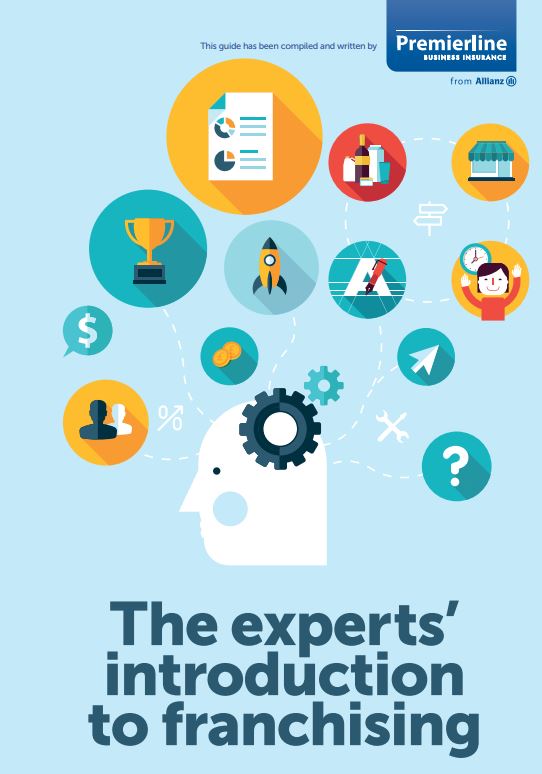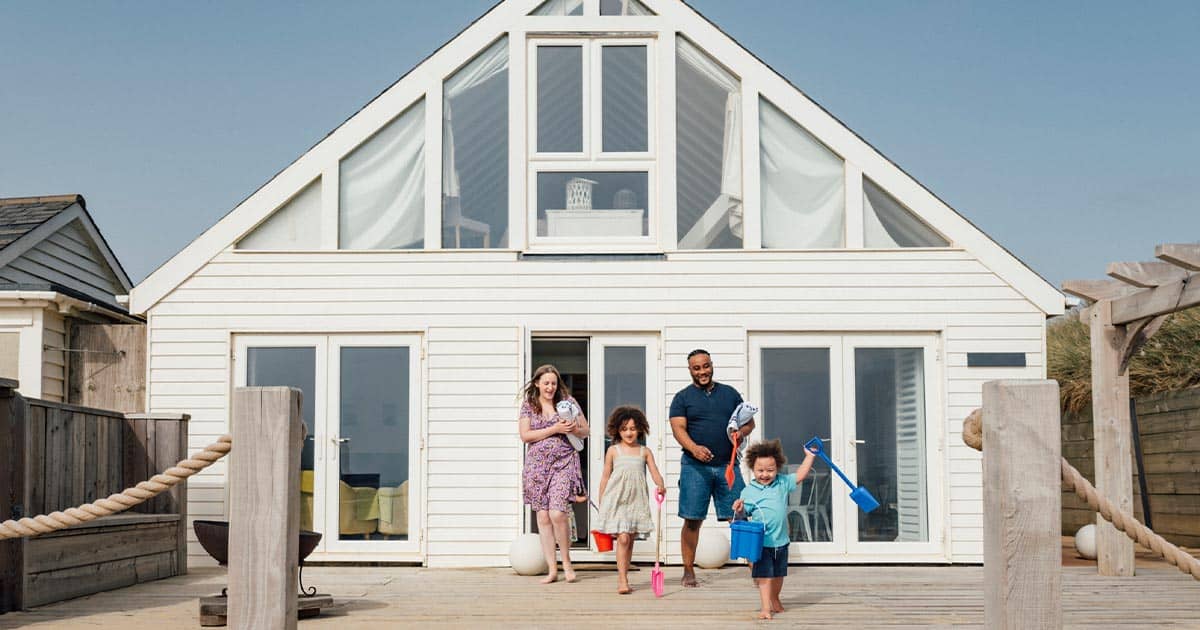An introduction to franchising in the UK
I'm considering franchising
Franchising is a type of business strategy that involves a business owner (the franchisor) giving permission to other individuals (the franchisees) to use their brand and trademarks to expand the business, in return for a fee.
The business owner provides ongoing support to the individual in the way of advertising and marketing, training and sometimes finance.
For the business owner (the franchisor), a franchise is a route to expansion that avoids opening new offices or recruiting more staff. It also often requires less upfront capital investment. Essentially the franchisor is selling the rights to market their product or service to others (the franchisees).
For the franchisee, investing in a franchise means that the work of building up the brand and establishing the systems and processes that will make the business successful have already been done. The franchisee can then focus on finding new customers and satisfying customer needs, with the support of the franchisor.
We've summarised the 3 main different franchising business models below:
Partnership
Limited Company
Joint Venture
Licensing
Contract manufacturing
More than half a million people in the UK are employed in franchising, as franchisors, franchisees or as someone involved in supporting the sector (such as franchise consultants). Almost 25,000 are franchisees, operating 39,000 franchised units.
There are also a surprising number of newer, smaller franchises that are achieving significant brand presence, including Autosmart, the van franchise, Right at Home, the home care franchise, and Total Clean, the commercial cleaning franchise.
However, despite franchising being around since the late 1800s, there are currently less than 1,000 franchise systems in the UK. When you compare this to the total number of private businesses in the UK (almost 5 million), it becomes clear that even though there are some powerful franchise brands out there, it is still a relatively small market.
Whether there is an opportunity in the franchise market for you or your business, depends on your business type, your target customers, your products and services and your personality. So if you’re striving to become the next McDonalds, it’s clear that plenty of research needs to be done up front to make sure it’s the best strategy for growth.
I want to franchise my business:
Becoming a Franchisor
Some businesses don’t want to expand by recruiting more staff and opening more offices because of the added costs, risks and responsibilities involved.
For these businesses, franchising can be a better alternative because the franchises are set up in locations near to the people that are demanding their products or services. This allows the business owner to focus on supporting the franchisees from one location and ensures that all their customers’ needs are met.
We have created a seperate guide on the advantages and disadvantages of franchising.
Not all businesses are suitable for franchising. Businesses whose brands are based on an individual, or whose idea is easy to copy with little upfront investment, are unlikely to succeed as a franchise. However, those with products or services that are repeat purchases, such as restaurants, cleaning or bookkeeping, are ideally suited to it.
Clive Sawyer, the franchise consultant from Business Options, recommends that any business considering becoming a franchise produces its business plan before giving any thought to the company structure. That way the business model is tailored to the plan rather than the other way around.
Often someone outside of the business gives the owner the idea that their business can become a franchise. Sometimes it’s because it has powerful, unique branding that others will easily remember and engage with. Or the PR may already have been done successfully, in which case the benefits of the hard work of establishing the brand can be passed on to others to meet customer demand.
This is the case for Dean O’Brien, who created Mr Yipadee (a children’s entertainer and singer) following the birth of his daughter. “My mission is to empower and entertain children on a big scale, to enable them to grow knowing they can reach their full potential,” says Dean. “With a lot of other people doing this in their local regions, this will achieve this objective quicker and on a bigger scale. Having met with people working in and supporting the franchise sector, I have realised that franchising is the best way for my business to directly reach and work with a lot of children and parents.”
As well as your business suiting franchising, you as the business owner need to find what aspects will satisfy you personally too. Aspiring to help others achieve what you have is the motivation that has driven Carlos Garcia from Total Clean. Carlos decided to franchise his business because he wanted to grow it on a national level. “I wanted to share my knowledge and the experience I had gained with others,” he says, “to give them a chance of the success I have enjoyed.”
Franchising is niche for a reason. It is a relatively complex business model that, when implemented correctly, can grow quickly and profitably.
But it is these complexities that mean that people that are new to franchising should consider calling on those experienced in it to support them.
Clive Sawyer sees franchise consultants as part of the team that any business needs around them to grow. “In the same way that you might use the services of an accountant, a lawyer and a marketing agency, a franchise consultant helps you set up your franchise to ensure its success,” says Clive. “They stop you making mistakes and tell you what you don’t know. Ultimately, the objective is to help educate you and your team to be able to run your franchise without them.”
Carlos Garcia from Total Clean agrees. “Make sure you recruit quality consultants with knowledge in your particular field, who can then bring the key experts to you so that you don’t make expensive mistakes.”
As a franchise recruitment expert, Sarah Carlile from Coconut Creatives suggests that generally speaking you can expect to recruit one or two franchisees for every 100 leads (people expressing an interest in your franchise). So, as Sarah points out, if you want to take on 10 franchisees over the next year, then you are looking at generating a minimum of 1,000 leads.
In her book, ‘Dream, plan, reduce risk and take action’, Sarah sets out how important budgeting for franchisee recruitment is.
“Ensuring that you are targeting and courting the right consumers in the right way with consistent messages that reflect your brand, is most definitely at the heart of a solid marketing strategy, and all that activity needs to operate within a budget. It is really important that you are realistic about what you can spend on franchisee recruitment. You can work out your budget as follows:
Leads required x cost per lead + 10% of potential revenue.”
Carlos Garcia emphasises the following tips for making sure your business model fits the key criteria for franchising:
Franchising your business is not necessarily the cheap option for growth. Setting up a franchise involves time, effort and financial investment to make sure that the model, systems and processes can be successfully replicated by others.
Richard Holden from the Lloyds Banking Group explains that whilst the banks that support franchises tend to focus on lending to franchisees, they acknowledge the fact that successful franchises are proven business models and so can offer better lending rates than they might other types of business.
Nicky Lees is a franchise coach at Pera Consulting, which is part of the Government’s GrowthAccelerator programme that supports high-growth businesses in achieving their full potential. “Businesses that are eligible for GrowthAccelerator can get matched funding for leadership and management development on top of tailored support from a business coach,” says Nicky. “This can include helping attract more
people to buy into a franchise as well as providing support to recruit the right calibre of franchisee.”
Franchisors pay an initial GrowthAccelerator fee depending on the size of their business and then can receive up to £2,000 matched funding per senior business member.
The other options for funding your franchise are the same as with any business start-up and include:
Cash – whether it be from redundancy, inheritance or the sale of a previous business
Bank overdraft – some banks offer decent overdraft limits but the interest rates and charges can be high
Leasing – choosing to lease some of the equipment you need for your franchise business can reduce the initial cash outlay, however the overall cost will be higher than if you bought the items outright
Asset-based loan – if you own valuable property or equipment, you can borrow money against them, but again this can be an expensive option
Factoring and invoice discounting – giving you an immediate cash advance on invoices as soon as they are raised, minus any charges
Crowdfunding - by posting your idea on a crowdfunding platform several people may come together to invest in your franchise
“As a franchisor looks to expand,” says Richard Holden, Lloyds Banking Group, “banks may be happy to support the business’s growth. The lower commercial failure rate for franchises means it should survive longer, lowering the risk to a potential lender.”
According to the latest NatWest bfa franchise survey, franchisee recruitment continues to be the single biggest ongoing challenge of the sector. When so much rests on the success of each franchisee, it’s vital that the right individuals are brought on board.
As a franchise recruiter, Sarah Carlile recommends five key qualifying criteria for franchisors to look out for when searching for suitable franchisees.
- Finance – “Does the individual really have enough money to buy the franchise?” asks Sarah. And are they aware of the funding that is available to them through GrowthAccelerator and by way of bank loans?
- Time – “On average it takes six months for someone to decide to buy a franchise,” explains Sarah. The person making a snap decision based solely on the prospectus is unlikely to have fully researched the opportunity and understood what will be required of them to make it a success.
- Interest – how interested is the individual in the brand and the industry? “Passion for the product or service or knowledge of the sector will go a long way to growing the franchisee’s business as well as that of the franchisor,” says Sarah.
- Motivation – “If an applicant is obviously only looking for something to do, then becoming a franchisee is unlikely to reap rewards,” says Sarah. If, however, they are obviously motivated in the same way as the franchisor, their venture is more likely to succeed long into the future.
- The Specifics – “It’s amazing how many applicants for a man and a van franchisee don’t have a driving licence,” says Sarah. So it is important to ask the specific and sometimes obvious questions early on.
I want to join a franchise:
Becoming a Franchisee
Becoming a franchisee removes the need to build a brand, establish systems and processes and train staff, which can be appealing. However, it also removes some of the flexibility and autonomy that an outright business owner might enjoy.
If you want to start a business, franchising is one way to go. But there are some trade-offs. In this guide we look at some of the advantages and disadvantages of franchising from the point of view of the franchisee.
We have created a seperate guide on theadvantages and disadvantages for the franchisee.
In the same way that not everyone is suited to working in a large multinational, not everyone would make a good franchisee. Some choose franchising because it fits in with their lifestyle, such as raising a young family or wanting something to keep their brain active in retirement.
This was the case for TJ Sutherland and Steve Brown, who are Rosemary Bookkeeping franchisees. “I saw an advert for a franchise show in my local town. It offered an ideal opportunity for me to keep busy after retiring and for my daughter to fit her work around her family,” said Steve.
According to Steve and TJ, the key characteristics for making a franchise work are being passionate, patient and persevering. “This is not a 9-5 job,” says TJ. “You have to put in whatever hours it takes to make your business successful. You won’t get clients immediately so you need to network, network, network to get your name out there.” You won’t get paid for every hour you work either.
Despite what some might think, being entrepreneurial is important in becoming a successful franchisee. “An entrepreneurial spirit is vital in expanding the business,” says TJ. “You should always be looking for new avenues to sell what you do, as long as you stay within your Franchise Agreement,” she adds.
But there’s a balance. “Why else would you go into franchising unless you wanted to follow someone else’s model?” says Richard Holden from Lloyds Banking Group. “If you’re very entrepreneurial then franchising is probably not for you.”
“The ideal franchisee is a likeable people person,” explains Sarah Carlile at Coconut Creatives. That said, they also have the mentality of a business owner. “Although many franchisees are responsible for finding new clients, they still need to be able to upsell and cross-sell,” she says. She also stresses the importance of a full time attitude from franchisees, even if the business opportunity is only part time. “There is always something to be proactive about,” she concludes.
“It’s like being a farmer,” adds Steve Brown, Rosemary Bookkeeping. “ You have to sow some seeds before you can cut the corn.”
There are several online directories that list current franchise opportunities across the UK. The best place to start is the British Franchising Association , which lists all the accredited franchise brands that are currently looking for franchisees.
Up and down the country franchise shows, fairs, seminars, open days, exhibitions, workshops and more are being hosted by those involved in the sector throughout the year.
Once you’ve made up your mind that becoming a franchisee is the best route forward for you, Sarah suggests attending more local events. “Regional shows avoid you wasting time talking to franchisors who don’t have opportunities available in your territory, as can be the case at the national shows,” she explains.
“A good place to start is the National Franchise Exhibition,” says Sarah Carlile, Director, Coconut Creatives.
“Which will give you an overall flavour for the sorts of people that franchisors are and the sorts of businesses they run.”
The British Franchise Association (BFA) was formed in the UK to assess and accredit franchise companies as reputable and responsible. Joining the BFA as a franchisor or a professional advisor in the industry involves being tested against strict and extensive criteria.
So choosing the right franchise business to join should start with making sure that the businesses you’re considering are members of the BFA.
Next it’s important to find the businesses that suit you personally. Does the sector they operate in match your experience and interests? Does the territory that’s available make sense for your commute and would it fit around the rest of your commitments? Do you have enough money to make the most of the franchise opportunity on offer?
Finally, and potentially most importantly, choosing the right franchise business comes down to the experience and personality of the franchise owner. Most franchise agreements last longer than five years, so you’d need to be absolutely satisfied that they have the credentials and the two of you would get on.
“At the end of the day, when you buy a franchise you are entering into a business partnership with the franchise owner,” says Sarah Carlile.
Buying into a franchise is a major investment. Just like with any other big purchase, it is important to do your research first.
Once you’ve identified a franchise business that suits your experience and interests, the first thing to ask yourself is ‘will I get on with the franchisor?’ As a franchisee you will be working closely with the franchisor to get you up and running and then to support you as you grow your business. If you can’t establish a strong working relationship then your venture is likely to struggle. Also consider speaking to existing franchisees to see how you would fit into the network.
Once you’re comfortable that you’ll get on, here are four questions to ask the franchisor before signing on the dotted line:
- How successful is this franchise? Research how strong the franchise business has been in the past and the failure rate of its past and current franchisees. Ask the franchisor if you can review their finances. How often are franchise units changing hands and can you speak to any failed franchise unit owners to find out what happened?
- What does the ongoing support look like? Once the initial training is over and your business is up and running, what level of support will the franchisor provide? Find out who’s available, when and what they can help you with as part of your agreement.
- How is your area protected? Scrutinise the Franchise Agreement to understand the franchisor’s guarantees that they won’t open up their own outlets or sell other franchises on your patch. Discuss any concerns with the franchisor.
- Will you make enough money? The bottom line is that you’re joining the franchise to make money. If the numbers simply don’t add up then talk to the franchisor about your options. If it still doesn’t make sense for you financially, you may have to walk away.
As with any startup, finding enough of the right kind of capital to make the business a success is a vital early step. For franchisees, the initial costs include (but are not limited to):
In addition to this are the ongoing fees, also known as the royalties or management fees that are paid to the franchisor. Often they are a percentage of the franchisee’s turnover and can be more than 15%.
It’s easy to see how these costs can add up, meaning that some potential franchisees need to look further than their savings account to raise the funds.
Thankfully some British banks have specialist franchising units that provide better terms than they would do for traditional start-ups, as Richard Holden from Lloyds Banking Group explains:
“Some banks will finance up to 70% of the investment a franchisee needs to buy into the franchise, sometimes at a better interest rate than normal too. This can include working capital, the licence fee, additional investment for a vehicle or fixtures and fittings, and a reasonable income for the franchisee to take from the business until it is up and running.”
Other sources of finance are also available, such as invoice finance (where you receive a cash advance on your invoices as soon as they are sent to your customer) and asset finance (where you pay for tools and equipment over a set period instead of buying them outright). The costs associated with these options will need working out in detail to make sure they are a cost effective way of setting up your franchise.
As with anyone starting out in business, new franchisees will look for support from those who have done it before to make sure they spend their money wisely. However it can feel difficult to justify the cost of getting an expert involved when there are so many other demands on your finances. So the Government has set up GrowthAccelerator to ease the pressure for startups, including those wanting to become franchisees.
“Employing a coach who has been there and done what you need to do to run a successful franchise can be out of budget” says Nicky Lees from Pera Consulting.
assion, perseverance and patience are key to making your franchise successful. Some of our contributors have also shared some of their top tips:
Richard Holden:
- “Listen to the guidance of your franchisor. Follow their model and system.”
- “Understand that your business plan is a working document, not just one to get finance from the bank. Benchmark where the business is now with where you thought it would be. Identify the problems and find the potential opportunities.”
Clive Sawyer:
- “The franchisor prospectus won’t tell you where the headaches are. You have to be careful that you don’t look at the opportunity through rose tinted glasses and get carried away. Do your due diligence first.”
Carlos Garcia:
- “Find franchisors that give a huge amount of support to their franchise partners. Look for open lines of communication within the network. Franchisors that listen and learn from the network’s daily experiences and is able to adapt quickly to accommodate advances in the market place are more likely to be successful.”
Steve Brown:
- “Don’t try to reinvent the wheel, listen to what the franchisor is telling you.”
TJ Sutherland:
- “You’ll grow your business faster if you’re not focused on the sell. Let others tell you their woes and listen to their needs. Then fit your services to them and not you.”


















